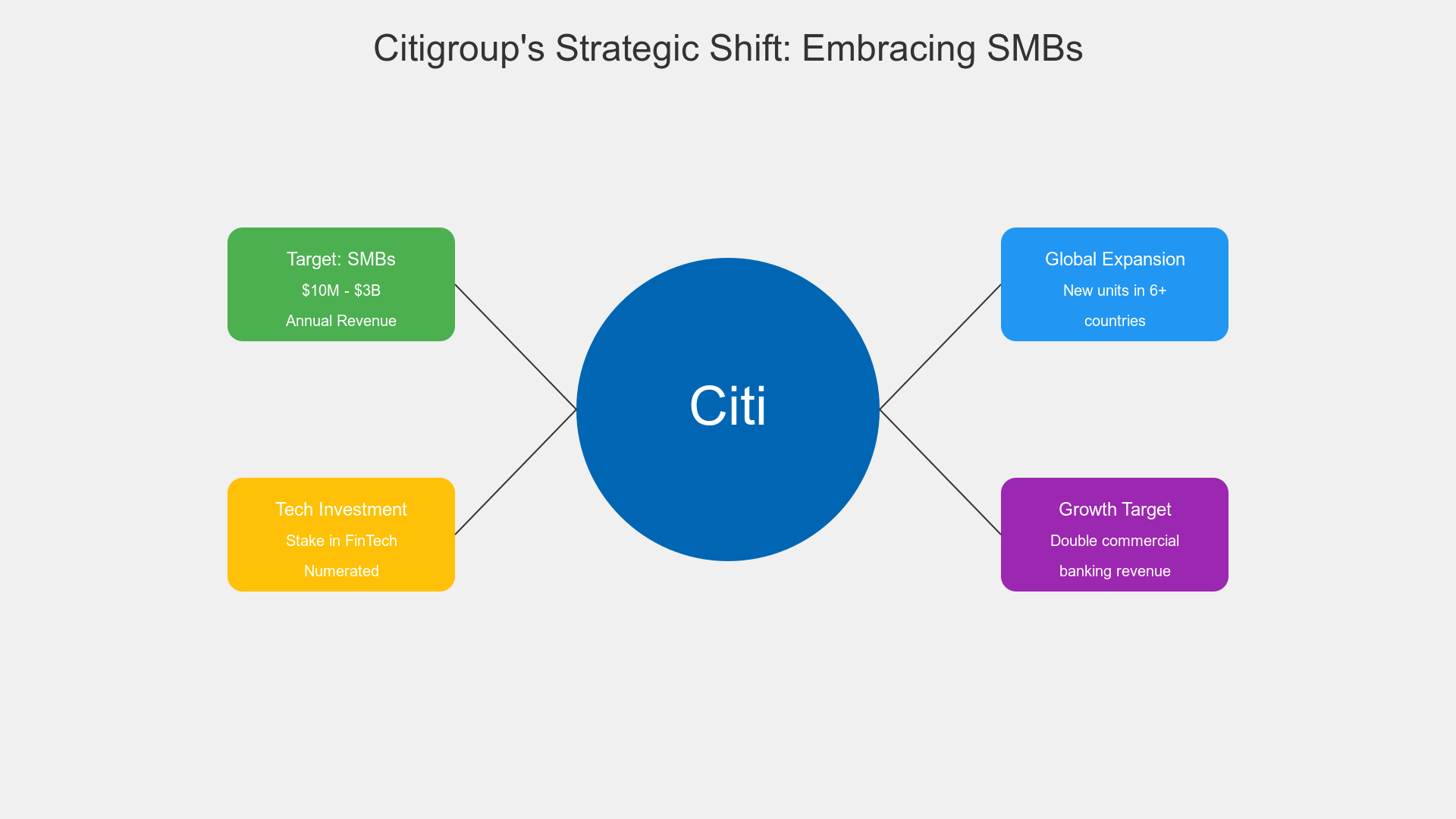In a significant move that could reshape the banking landscape for small and medium-sized businesses (SMBs), Citi is reportedly expanding its focus to include smaller clients. This shift marks a departure from the bank’s traditional strategy of catering primarily to large corporations.
Expanding the Client Base
Citigroup is now targeting businesses with annual revenues ranging from $10 million to $3 billion, according to a recent report by the Financial Times. This expansion into the SMB sector represents a strategic effort to boost the bank’s revenue streams.
Global Reach
The bank’s initiative is not limited to a single market. Over the past two years, Citigroup has established dedicated commercial lending units for small and medium-sized businesses in several countries, including:
- Canada
- France
- Germany
- Ireland
- Japan
- Switzerland
This global approach underscores the bank’s commitment to serving SMBs across diverse markets.
Strengthening SMB Focus
To support this strategic shift, Citigroup has taken several key steps:
- Appointed new regional leaders to oversee SMB operations
- Invested in FinTech company Numerated to leverage machine learning for loan data management
- Reorganized its structure to improve cross-selling capabilities
These moves are designed to enhance Citigroup’s ability to serve the unique needs of SMBs effectively.
Market Factors Favoring the Shift
Several factors have created a favorable environment for Citigroup’s SMB-focused strategy:
- Regional banks facing pressure from high interest rates and commercial property losses, limiting their lending capacity
- Increasing importance of technology in business lending, giving an advantage to larger banks with more resources
- Potential for growth, with Citigroup aiming to double its commercial banking revenue by adding SMB clients
Potential Impact on SMBs
This strategic shift by a major bank like Citigroup could have significant implications for SMBs:
- Increased access to financial services typically reserved for larger corporations
- Potential for more competitive lending options
- Access to advanced technological solutions for financial management
However, it’s worth noting that historically, small businesses have faced challenges in securing financing. The Small Business Administration (SBA) reported that in the 2022 fiscal year, $8 billion worth of potential SBA loans went unused (SBA, 2023).
Conclusion
Citigroup’s move to embrace SMBs represents a significant shift in the banking industry. As Tasnim Ghiawadwala, global head of commercial bank at Citi, told the FT, “With only a small investment, the bank can gain incremental revenue by providing its mid-sized corporate clients with the same services it provides to large companies” (FT, 2023).
This strategy could potentially open up new opportunities for SMBs while also reshaping the competitive landscape in commercial banking. As this initiative unfolds, it will be crucial for SMB owners and managers to stay informed about new financial services and opportunities becoming available to them.
References:
- Financial Times (FT). (2023). Citigroup expands focus to include smaller clients.
- Pymnts 2024. Citigroup Aims to Double Commercial Banking Revenue by Targeting Small Businesses



 Dealing with a Google Business Profile Suspension: My Experience and What to Expect
Dealing with a Google Business Profile Suspension: My Experience and What to Expect